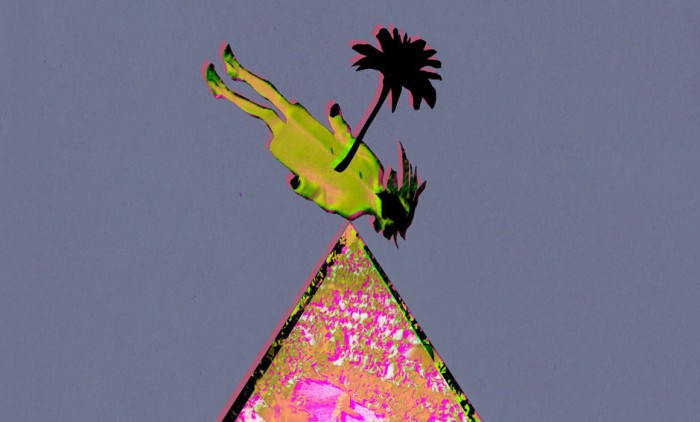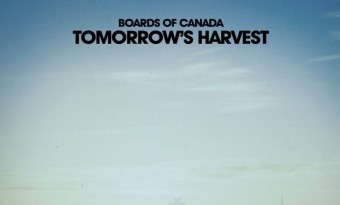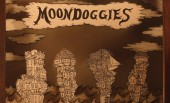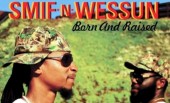His long-term collaborator Seb Rochford may be the most prominent face, or at least hair, in modern British jazz, but Pete Wareham’s spirited honking has been the most distinctive element of their bands over the last decade. Acoustic Ladyland, Polar Bear and Fulborn Teversham have all helped a genre that gets little mainstream attention these days cross over to new audiences, with a punk edge that’s rarely been heard since Pigbag.
While Rochford may not feature in Wareham’s new outfit Melt Yourself Down (named after an obscure James Chance album), the saxophonist’s form hasn’t suffered; only he now seems determined to cross borders as well as genres. This is World Music not in the “it sounds a bit foreign so just shove it in there” sense, but because it sounds like everyone in the entire world playing at once. There will not be a more energetic record released this year – just a few minutes in and you half expect your speakers to start dripping sweat.
Considering the pedigree of the band Wareham has assembled, the quality of the record should be no real surprise. Fellow saxophonist Shabaka Hutchings has played on The Heliocentrics’ collaboration with Ethiopian jazz legend Mulatu Astatke, while drummer Tom Skinner plays alongside Hutchings in their band Sons of Kemet, which sees him up against the aforementioned Rochford in a percussive blitz. Bassist Ruth Goller exchanged meaty riffs with Wareham on the last Acoustic Ladyland album, Kushal Gaya’s bizarre multi-lingual vocals usually augment the glorious racket of ZunZunEgui, percussionist Satin Singh’s rhythms have featured everywhere from Supergrass albums to the musical ‘Fela!’, and electronics whizz Leafcutter John is a long-time Wareham collaborator. Together their noise can be summed up, quite simply, as a fucking blast.
Wareham has stated that Melt Yourself Down is “the first project I’ve done where all the music has been written, rehearsed and recorded before any gigs”, perhaps explaining that while the musical ideas are wide-ranging, the tracks themselves are surprisingly compact and dynamic. “There was an immediate chemistry,” he enthused to London In Stereo. “The first tunes we played were ‘Release!’ and ‘Fix My Life’ which I brought to the first rehearsal and we nailed them right away. It felt amazing”.
Those two tracks kick the album off, and the mighty wallop they give your eardrums feels pretty amazing too. ‘Fix Your Life’ launches proceedings with brutal horns, clattering percussion and Gaya doing his best impression of a whooping, growling jazz goblin, while the afrobeat rhythms of ‘Release!’ power along at a tempo roughly equivalent to the one Kanye West’s heartbeat reaches whenever he catches sight of his own reflection. The feeling of total abandonment twinned with intense repetition makes for a truly psychedelic experience.
North African / Middle Eastern modes are spiced up with a dancehall beat on ‘Tuna’, but this isn’t just a musical tourist cruise; or if it is, it’s one where the band toss their passports into the sea, leap onto the harbour and run naked into the jungle. ‘We Are Enough’ takes a detour back to Wareham’s jazz-punk roots though, with Gaya swapping phrases with the saxophones over hulking chunks of riff. This does have the knock-on effect of making tracks like ‘Free Walk’ sound a little lightweight mind, despite the percussion being sharp as a knife, but it’s a rare lull.
Indeed, the band starts simmering again soon after. Wareham and Hutchings play with a mind-blowingly nimble dexterity on ‘Mouth To Mouth’, the aural equivalent of watching a master sushi chef slice a salmon into sashimi in milliseconds, while Goller’s growling bass backs them up like a seven foot sous chef brandishing a Fender cleaver.
The closing ‘Camel’, meanwhile, is carnival music as Bakhtin might have described it: “the context in which distinct individual voices are heard, flourish and interact […] “threshold” situations where regular conventions are broken or reversed and genuine dialogue becomes possible”. In other words, it rocks like a mother; even unleashing a tidal wave of voodoo surf at one point.
On paper, Melt Yourself Down sound like they’ll simply produce a messy conglomeration of the playlist in the SOAS student union bar back when you used to be able to smoke draw in there. Yet they’re too lively to simply provide a nice accompaniment to a pint of lager and an eighth of cheap bush-weed. Talking about the compositional process, Wareham mused about how “the instrumentation – no chords – allows me to write with space and dynamics, while keeping a rhythmic propulsion”. Well if albums were capable of propelling you into space, the raw materials here are what NASA would be using as fuel. As we said, a fucking blast.






Follow us
Follow us on Facebook Follow us on Twitter Follow us on Google+ Subscribe our newsletter Add us to your feeds